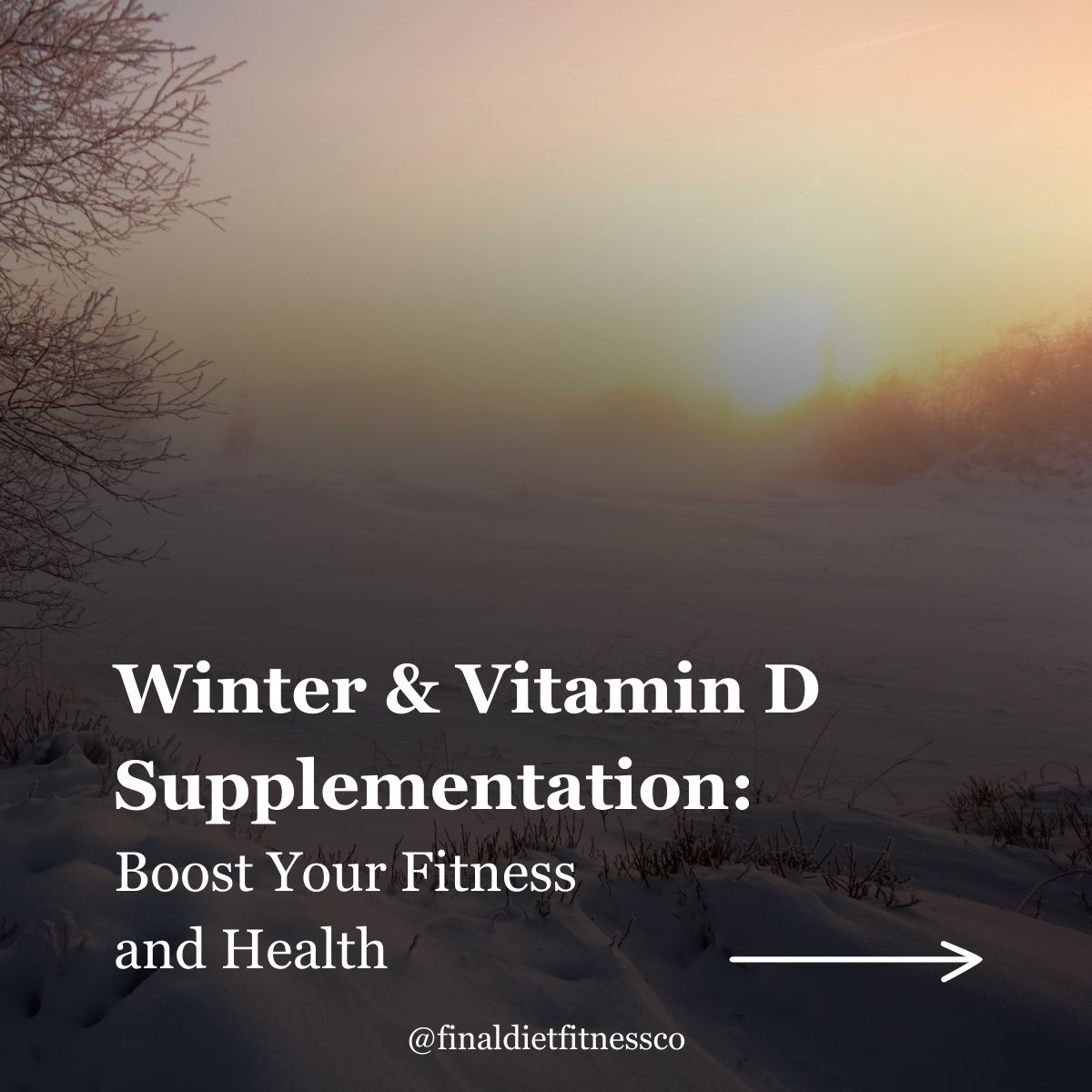
As winter approaches and the days get shorter, many of us may notice changes in our energy levels, mood, and overall health. A key factor in these changes is often vitamin D, which plays a crucial role in maintaining optimal health, especially during the colder months. In this post, we’ll explore the importance of vitamin D, why supplementation is often necessary in winter, and how it impacts your fitness goals.
Why Is Vitamin D Important?
Vitamin D is a fat-soluble vitamin that helps regulate several essential processes in the body, including:
-
Bone Health: Vitamin D aids in calcium absorption, which is critical for maintaining strong bones. It also helps prevent conditions like osteopenia and osteoporosis.
-
Immune Function: It supports the immune system, helping the body fight off infections and reduce inflammation.
-
Muscle Function: Adequate vitamin D levels are important for muscle strength and function. A deficiency can lead to muscle weakness and increased risk of injury.
-
Mood and Mental Health: Vitamin D plays a role in serotonin production, influencing mood and energy levels. Low levels are often linked to feelings of fatigue, irritability, and even depression—commonly known as "seasonal affective disorder" (SAD) during winter months.
How Winter Affects Vitamin D Levels
During the winter months, sunlight exposure decreases, which is one of the main ways our bodies produce vitamin D. The lower angle of the sun and the increased time spent indoors mean that many people don’t get enough sunlight to meet their vitamin D needs. In addition, if you live in northern latitudes where winter days are shorter, the amount of UVB rays necessary for vitamin D production is even more limited.
Why Supplementation Is Important in Winter
Given the challenges of getting enough vitamin D from sunlight alone during winter, supplementation becomes especially important. Here’s why:
-
Limited Sun Exposure: If you’re not able to spend much time outdoors in the winter, or if you wear sunscreen or cover your skin when outside, your body may not produce enough vitamin D.
-
Increased Risk of Deficiency: Studies have shown that vitamin D deficiency is more common in the winter months due to the lack of sunlight. Deficiency can lead to fatigue, weakened immune function, and decreased muscle strength—issues that can negatively impact your fitness progress.
-
Support for Fitness Goals: Vitamin D is essential for muscle health and recovery. It helps reduce inflammation and supports muscle function, so supplementing with it can help you maintain strength and energy levels, especially if you’re still hitting the gym or staying active during the winter months.
How Much Vitamin D Do You Need?
The recommended daily intake of vitamin D can vary depending on your age, health status, and how much sun exposure you get. However, a general guideline for adults is 600-800 IU (International Units) per day. If you live in an area with little sunlight during the winter, or if you have darker skin (which synthesizes less vitamin D from sunlight), you may need higher doses. It’s always best to check with your healthcare provider before starting a supplement regimen to determine the right dosage for you.
- General recommendation: 600-800 IU for adults under age 70, and 800-1,000 IU for those over 70.
- Common supplement doses: Many people take between 1,000-2,000 IU per day, and doses as high as 4,000 IU/day are considered safe for most people without a prescription, according to the National Institutes of Health (NIH).
- Deficiency treatment: For those diagnosed with a deficiency, higher doses (e.g., 5,000-10,000 IU per day) may be prescribed for short periods to restore levels.
Sources of Vitamin D
-
Sunlight: While it’s harder to get enough in the winter, even brief exposure (10-30 minutes a few times a week) can help.
-
Foods: Include foods rich in vitamin D like fatty fish (salmon, tuna, sardines), fortified dairy products, eggs, and mushrooms.
-
Supplements: Vitamin D3 (cholecalciferol) is the most effective form for supplementation and is readily available in capsules, liquids, and gummies.
Final Thoughts: Keep Your Winter Fitness Goals on Track
Winter doesn’t have to mean a decline in your fitness. By paying attention to your vitamin D levels, you can stay energized, strengthen your immune system, and keep progressing toward your fitness goals. If you find yourself feeling sluggish or experiencing muscle weakness, vitamin D supplementation might be just what you need to boost your energy and performance.
Remember, before starting any supplementation routine, consult with your healthcare provider to ensure you’re taking the right amount for your needs.
Stay active, stay healthy, and enjoy your winter workouts!







